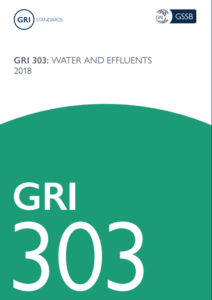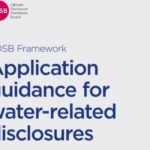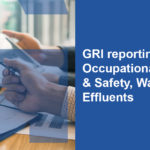
Access to freshwater is essential for all life, and a human right recognized by the United Nations. However, millions of people around the world suffer from water scarcity, poor water quality, and inadequate sanitation. Companies operating in areas with water stress have an urgent responsibility to track their impacts, to make informed decisions that trigger meaningful action. The cornerstone for effective water management is to know one’s impacts. As a response to the water crisis and the global 2030 Agenda for Sustainable Development, GRI, together with leading experts in water stewardship, has developed a standard to help companies understand how they interact with water, and the impacts of these interactions on the environment and the communities.
The updated standard, GRI 303: Water and Effluents 2018, has an emphasis on water stewardship, aimed at actively managing the impacts within the context of the watersheds companies are operating in. The standard has a basis in the Sustainable Development Goals, particularly Goal 6: ‘Ensure availability and sustainable management of water and sanitation for all’.
“The lack of access to freshwater affects more than 40% of the global population. In a world where some companies’ GDPs exceed that of whole countries, the business world is expected to rise to the challenge and do its part in addressing these. The aim of the revised water standard is to help companies report what matters, and where it matters, by using credible, context-based metrics,” says Bastian Buck, Chief of Standards at GRI.
The revised standard helps companies better understand their impacts on freshwater resources, particularly in areas where water stress is already high. It emphasizes collecting information on water use – from withdrawal to consumption and discharge, the associated impacts, and how they are addressed across the value chain. Supply chain impacts, for example, have so far been consistently underreported.
Modular approach ensures timely and relevant reporting standards
“As the most used sustainability reporting framework, we see it as our responsibility to create credible and robust standards so that companies can measure and report their impacts on the people and society in a meaningful way. This information feeds into internal processes and informs decision-making – accelerating action towards sustainable development,” Mr. Buck concludes.



